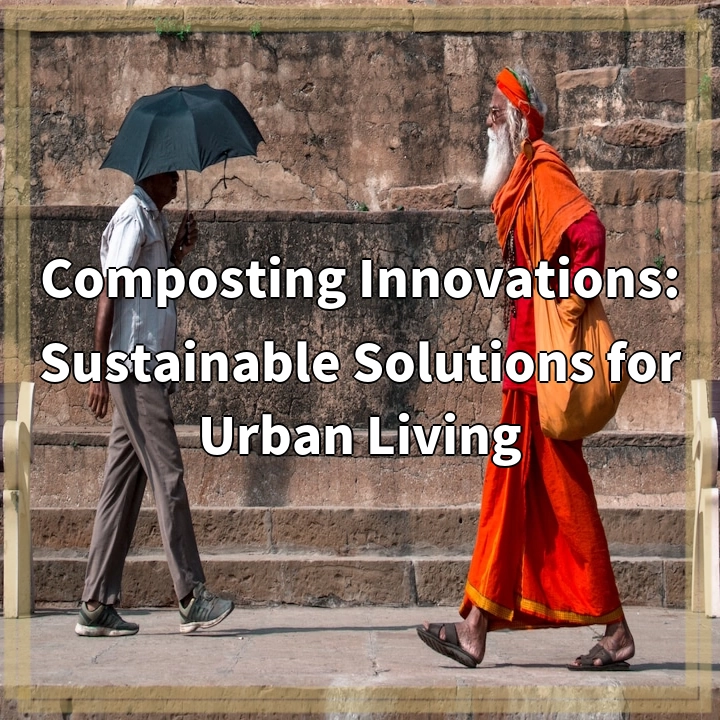
What is Composting Innovations: Sustainable Solutions for Urban Living?
Composting Innovations: Sustainable Solutions for Urban Living is the practice of transforming organic waste into nutrient-rich compost for use in gardens, indoor plants, and community green spaces. It is an innovative approach to waste management that promotes environmental sustainability and reduces the amount of organic waste sent to landfills. By composting, urban dwellers can play a significant role in reducing greenhouse gas emissions, improving soil quality, and conserving natural resources.
Real-World Problems Associated with Composting Innovations
Despite the numerous benefits of composting innovations in urban areas, there are several real-world problems that need to be addressed. These challenges can hinder the widespread adoption and success of composting initiatives. Understanding these issues is crucial for developing effective strategies and solutions.
Limited Space
One major obstacle in urban composting is the limited space available to residents. High-rise apartments, compact living spaces, and lack of outdoor areas make it challenging for individuals to engage in traditional composting methods that require outdoor compost piles or bins.
Odor and Pest Management
Composting often involves the decomposition of organic waste, which can produce unpleasant odors and attract pests such as fruit flies, rodents, and raccoons. Addressing odor and pest management is crucial to ensure that composting initiatives do not create nuisances or health hazards for urban dwellers.
Lack of Awareness and Education
Many urban dwellers are unaware of the benefits and methods of composting. Lack of education and awareness about composting innovations can prevent individuals from participating in these initiatives. It is essential to educate and inform residents about the importance of composting and provide guidance on how to effectively compost in urban settings.
Policy and Infrastructure
The absence of supportive policies and infrastructure can pose challenges to implementing composting innovations in urban areas. Municipalities may have limited regulations or incentives for composting, and there may be a lack of dedicated composting facilities or organizations to support and coordinate composting efforts.

Solutions for Composting Innovations: Sustainable Solutions for Urban Living
Space-Saving Composting Methods
To overcome the challenge of limited space, urban dwellers can explore space-saving composting methods such as vermiculture (using worms) or Bokashi composting (fermentation process). These techniques can be implemented indoors or in small outdoor spaces, making them suitable for urban environments.
Odor and Pest Control Techniques
Managing odor and pests is important for successful urban composting. Using sealed composting bins or containers with proper ventilation can minimize odor and discourage pests. Additionally, maintaining the right balance of carbon-rich (browns) and nitrogen-rich (greens) materials, proper layering, and regular turning or mixing can help mitigate these issues.
Awareness and Education Campaigns
Creating awareness and educating urban dwellers about the benefits of composting is crucial for its widespread adoption. Local governments, community organizations, and environmental groups can conduct workshops, provide resources, and promote educational campaigns to teach individuals the importance of composting and guide them on the best practices for urban living.
Policy Support and Infrastructure Development
Efforts should be made to establish supportive policies and infrastructure for urban composting. This includes incentivizing composting through tax benefits or rebates, implementing mandatory composting programs, and partnering with waste management companies to develop efficient collection and processing systems for organic waste.















